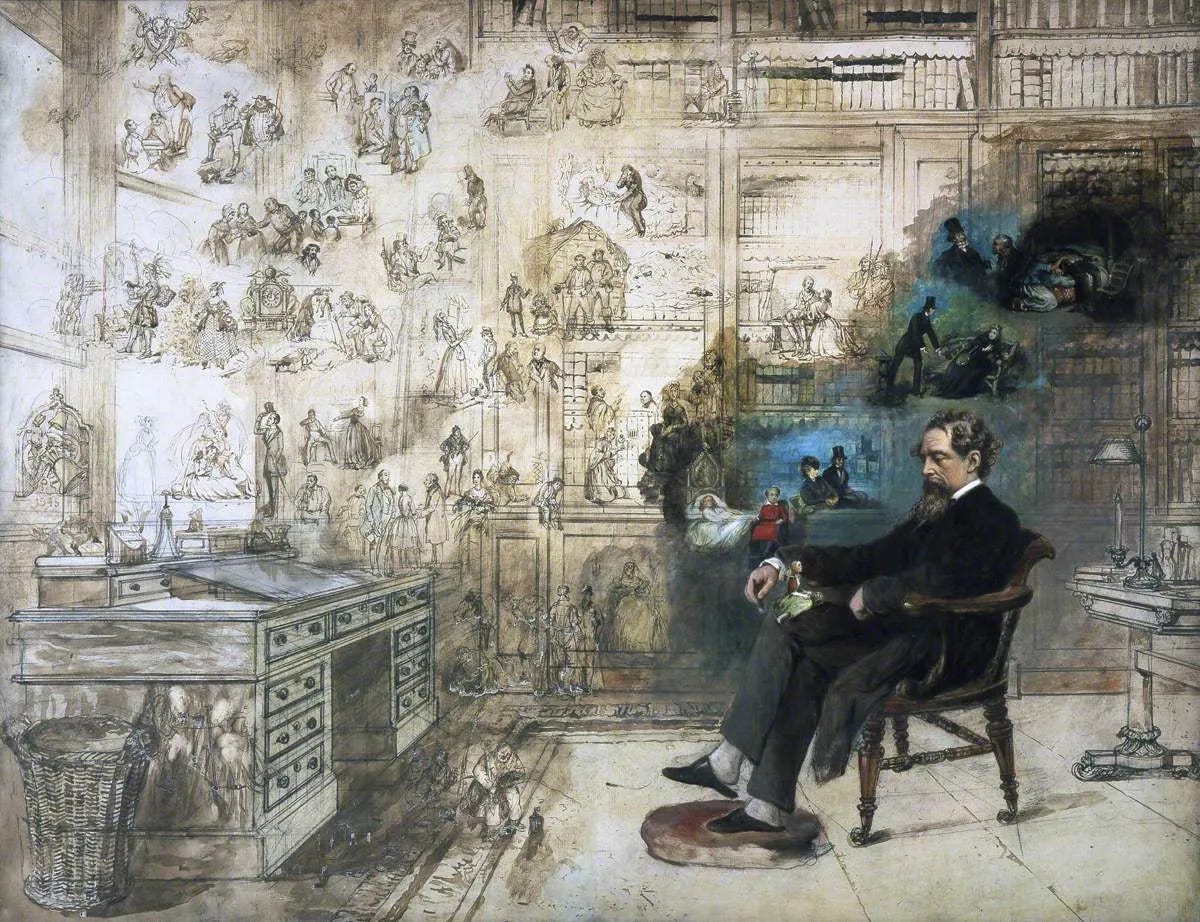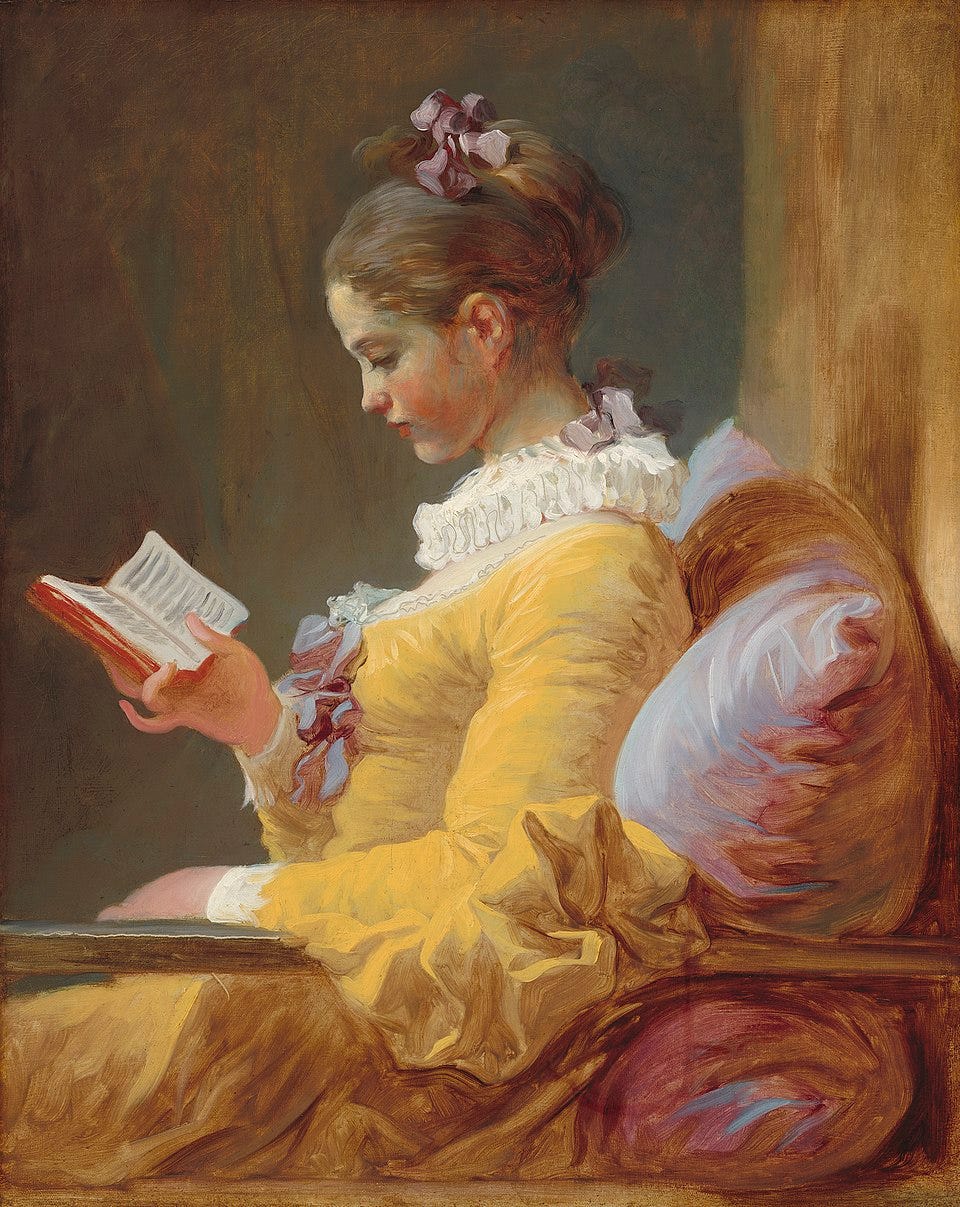Whistling in the Dark
How writing for eighteen years has shaped my life.
Words are holy. They’re not just means of communication. They’re containers of presence.
Eugene Peterson
This Monday is my blogging birthday. I started a regular habit of writing 18 years ago. My desire was to be to other people what I wished someone had been for me. To give my five loaves and two fish to Jesus and see what he would do. Like most things that God calls us to He calls us to things beyond our ability and equips us to become who he already knows we are.
I started writing small posts to encourage others. God shaped those simple words into a passion that now shapes my life. It took me 18 years of writing to finally realize that I am a writer—a caretaker of words. It still feels weird to say that.
Writing is not something I do to expand a platform or get recognition. Peterson says, “The minute words are used to manipulate or impress or control or entertain, they cease to be holy.” Writing has become something I must do. Something that God uses to form me with the words that are shaped into sentences and paragraphs.
I still remember when I told my wife, pregnant with our second son, who came out of the kitchen either cleaning or cooking, that I was starting a blog. She said What’s a blog? To be fair to her, not many people were writing blogs in 2007.
What God knew then, and I didn’t know yet, was that I was about to go through one of the most difficult seasons of my life. I needed the habit of writing words to keep me from losing hope when words failed me.
When I started, I thought that I would try to write things that helped others. But I have come to find that those words were shaping me all along and has been shaping me for the past two decades.
In this process, God brought me guides to think more deeply about what it means to be a pastor, a theologian, a poet, and a writer.
Writers I didn’t know where whistling for me when I lacked the strength. Telling me that in the dark, I was remembered and loved. This is the beauty of sacred words. They remind you that the dark is not all there is.
“Is that why we write, year after year, people like me— to keep our courage up? Are novels like mine a kind of whistling in the dark? I think so. To whistle in the dark is more than just to try to convince yourself that dark is not all there is. It's also to remind yourself that dark is not all there is, or the end of all there is, because even in the dark there is hope. Even in the dark you have the power to whistle. And sometimes that seems more than just your own power because it's powerful enough to hold the dark back a little. The tunes you whistle in the dark are the the sound of that hope, that power. Like the books you write.
Faith could also be called a kind of whistling in the dark.”[1]
Whistling in the dark is a reminder that the dark is not all there is. Our testimony, imperfect, pointing to the word incarnate, is an act of subversion in a world of lies. We redeem words that were holy and have always been holy but have been used to destroy what was created in perfection and beauty but was marred by the first lie. Did God not say… This whisper of broken love, of misdirected love, was the first word that challenged the word from the start.
The prophets of old proclaimed in words in a world between the word of creation and the world of incarnation. It was in this holiness of words the savior was promised. The hope of the world has come. Jeremiah didn’t lie to those in captivity. He said the savior would come, and they would be rescued at last, but it will be a while. The night will get dark but there is hope that you can’t see. Build homes, plant gardens, marry, give your kids to marriage. All of this in darkness of captivity. Jeremiah was teaching those without hope who could see nothing but hopelessness that when you whistle in the dark hope floods in.
The sacred act of writing does not make glib sacred words as the false prophets did for the captives of Israel. Writing is listening with hope, writing with a silent confidence that the dark that surrounds you isn’t all that there is. You whistle because even in the darkest night joy is never extinguished.
What the captives of Israel looked for as they stumbled around in the dark of captivity we have seen in the Word that John in the wilderness pointed to. The Lamb of God who had come to take away the darkness. The lamb of God who come to displace any confidence we have in our own ability to see. To flood our hearts with hope that no matter how dark the night. Because He said it is finished. The word himself. It really is.
Spurgeon the Prince of preachers who struggled with the darkness of depression his entire ministry. On October 19, 1856, during one of Charles Spurgeon’s sermons at the Surrey Gardens Music Hall in London, when he was preaching to a congregation of approximately 10,000 people, someone falsely shouted “Fire!” This caused a panic and stampede as the crowd attempted to exit the building. The result was that seven people died, and Spurgeon was filled with guilt and depression but also became a preacher who learned that with one word, darkness can descend.
Spurgeon also understood that our capacity to hope in the middle of our darkest night is not due to the cleverness of our abilities but the tune we whistle in the dark is because of the coming of Christ to us in our greatest need. Spurgeon said in a sermon several decades after tragedy struck him:
The coming of Jesus to us, when he does really come into our hearts, takes away the darkness of ignorance, sorrow, carelessness, fear, and despair. Our night is ended once for all when we behold God visiting us in Christ Jesus. Our day may cloud over, but night will not return. O, you that are in the blackest midnight, if you can but get a view of Christ, morning will have come to you! There is no light for you elsewhere, believe us in this; but if Jesus be seen by faith, you shall need no candles of human confidence, nor sparks of feelings and impressions: the beholding of Christ shall be the ending of all night for you. [2]
“The beholding of Christ shall be the ending of all night for you.” So profoundly beautiful. That is what good writing does. It pulls us from the grief that clings to us, that pulls us into the darkness that feels like a nightmare that will never end and whispers into our ear, “courage dear heart.”
In our present moment, between the incarnation and the final word, we are commissioned to proclaim words. Christ’s final word is to be our first priority.
Matthew 28:19-20 19 Go therefore and make disciples of all nations, baptizing them in[b] the name of the Father and of the Son and of the Holy Spirit, 20 teaching them to observe all that I have commanded you. And behold, I am with you always, to the end of the age.” This command has been and is being fulfilled through proclamation of sacred words. Teaching all that has been commanded. The gospel is a heralding to the world in words of the reality of Christ in his incarnation, the present reality of his Sprit with us, and a warning of his coming in final judgment.
The darkness of our world feels like a night that has never been darker. The war, death, sickness, broken homes and broken lives, that mark our age seem like a night that will never see dawn. Yet the coming of the word. The coming of Christ has brought an end to our night. When Christ comes to us the darkness of sorrow and fear are gone.
We whistle because what used to be the ink of night is now only cloud covered sky. When we have beheld Christ the Word there is no more night for us. Our confession is Jesus is Lord our profession is come quickly Jesus. We whistle because of the tender mercy of God.
It the end, every knee will bow and every word confess that Jesus is Lord.
Words will not be destroyed in the coming of the first and final word, but every word will find its final fulfillment in the words of the Word himself. Until that day, we whistle and sing in the dark. Our words testify to the light in the middle of the darkness. The darkness is not all that there is because the word has come, and the Word will come again.
[1] Buechner, Frederick. The Clown in the Belfry: Writings on Faith and Fiction. New York: Harper & Row, 1992, page 25-26
[2] Spurgeon, C. H. “‘The Tender Mercy of Our God,’” in The Metropolitan Tabernacle Pulpit Sermons, vol. 32 (London: Passmore & Alabaster, 1886), 355.






So much truth in this, Sam. Thanks.
I am so glad you started your blog before blogs were a thing! I so enjoy your writings. I always look forward to your new posts.